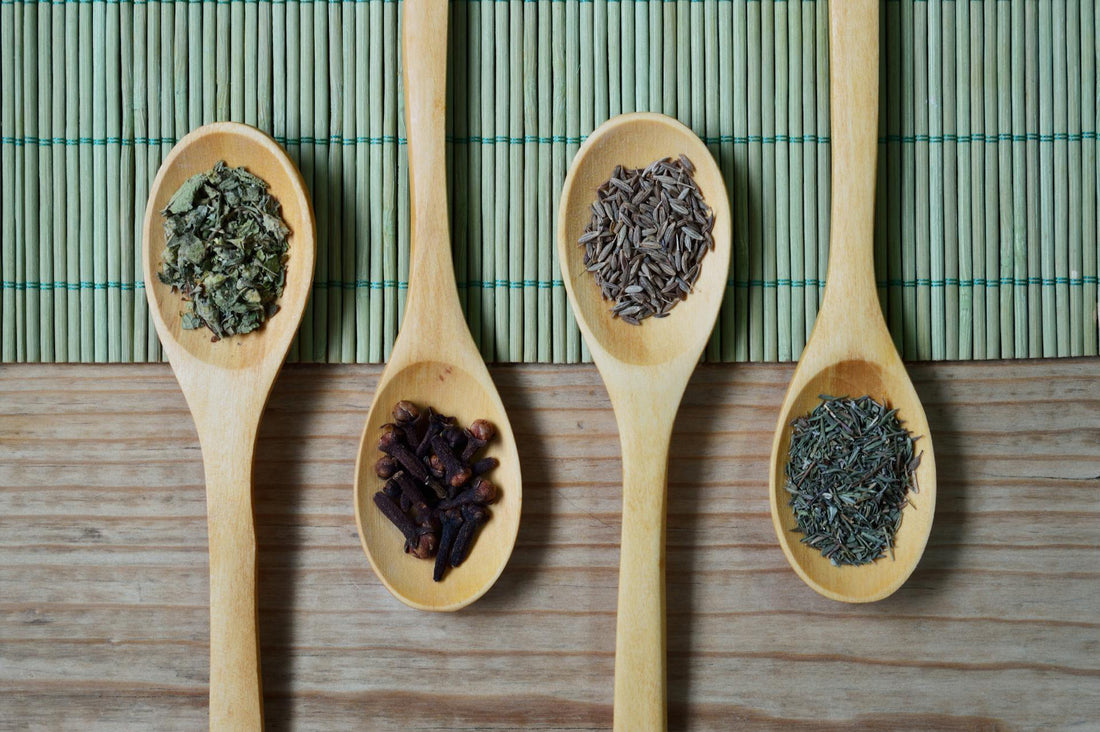In today's world, stress is a part of our daily lives. Work deadlines, family responsibilities, relationships, and the general chaos of modern life. There's just too much that can damage our bodies and minds.
Studies show that one-third of Americans are stressed. 49% of the population reported experiencing frequent stress, the highest in three decades.
This is where adaptogens come into play.
But what are adaptogens?
These herbs have been used for centuries in traditional medicine, like Ayurveda and Traditional Chinese Medicine. They help the body adapt to stress and promote well-being.
Adaptogens help modulate the body's stress response system, known as the hypothalamic-pituitary-adrenal (HPA) axis, without causing disruptions to other functions.
In other words, they help the body stay balanced during stressful situations.
With so many adaptogens on the market, it can be overwhelming to choose the right one. This article will help you understand how Ashwagandha adaptogen compares to others.
This comparison will highlight the benefits of adaptogen Ashwagandha and provide you with the information you need to make the best decision for your well-being. Let's get started!
Let's get started!
Let's Understand Ashwagandha First
Before comparing Ashwagandha to other adaptogens, we should understand this herb well.
Adaptogen Ashwagandha is also known as 'Withania somnifera' or 'Indian ginseng'. It has been a staple in Ayurvedic medicine for over 3,000 years. I
Its name comes from two Sanskrit words: "ash," meaning horse, and "gandha," meaning smell. It literally translates to "smell of horse" due to its earthy odor and the belief that it imparts the strength and vitality of a horse.

Ashwagandha
History and Traditional Uses of Ashwagandha
This ancient herb has a rich history in traditional medicine. In Ayurveda, it is revered as a Rasayana, or rejuvenating herb.
The primary goal of Rasayana therapy is to optimize the function of Dhatus, the body's fundamental tissues.
Traditionally, Ashwagandha adaptogen has been used for three main purposes. These include- boosting energy, improving stamina, and promoting longevity. It is also believed to support immune function and enhance vitality.
Scientifically Proven Benefits of Ashwagandha
Modern research supports many of the traditional uses and benefits of Ashwagandha adaptogen.
Studies suggest that Ashwagandha helps the body cope with stress and promotes calm and balance.
It also promotes better sleep by helping the body relax and combat insomnia. This regulates the sleep-wake cycle for more restful sleep. Additionally, it supports healthy adrenal function, crucial in managing stress hormones like cortisol.
Ashwagandha's benefits extend beyond stress management. Thanks to its potent antioxidants, it is known for its immune-boosting properties.
It enhances the activity of immune cells, such as natural killer cells and macrophages. These cells defend against infections and diseases. Furthermore, research suggests that Ashwagandha may have neuroprotective effects, supporting brain health and cognitive function.
Ashwagandha's Mechanism of Action in the Body
Ashwagandha's adaptogenic power comes from its unique blend of bioactive compounds.
These compounds include alkaloids, steroidal lactones (withanolides), and saponins.
They work together to modulate the body's stress response system. This helps to restore balance and resilience to stressors.
Unlike conventional stress-relief medications, Ashwagandha works gently. It does not cause dependence or tolerance, and it has fewer side effects.
How Can You Consume Ashwagandha?
Ashwagandha is available in various forms to suit different preferences and lifestyles.
Here are some common ones:
- Powder: Mix with water, milk, or smoothies.
- Capsules: Pre-measured dosage for convenience.
- Tinctures: Liquid extracts for quick absorption.
- Teas: Steep dried root or leaf in hot water.
- Extracts: Concentrated forms with specific levels of active compounds.
- Topical Products: Creams, oils, and balms for skin benefits.
- Snacks: Various healthy snacks are infused with adaptogen Ashwagandha for a calming and energizing effect. The most popular ones are these chocolate protein bars, peanut butter bars, and protein puffs from 100 calorie snacks.

Ashwagandha vs. Other Adaptogens
Panax Ginseng
Panax Ginseng, also known as Asian or Korean Ginseng, is a perennial plant native to Eastern Asia.
Panax Ginseng, also known as Asian or Korean Ginseng, is a perennial plant from Eastern Asia. It has been used for centuries in traditional Chinese medicine for its rejuvenating properties. It contains active compounds called ginsenosides.
They are responsible for modulating various physiological processes in the body.
Benefits of Panax Ginseng:
- Supports energy levels and reduces fatigue
- Enhances mental clarity and cognitive function
- Improves physical endurance and stamina
- Boosts immune function and enhances overall vitality
Potential Side Effects of Panax Ginseng:
- It may cause insomnia or restlessness in some individuals
- Rare cases of allergic reactions
- It may interact with certain medications, including blood thinners and diabetes medications
- Long-term use may lead to hormonal imbalances in some individuals
- Women can experience vaginal bleeding and breast tenderness.
How Can Panax Ginseng Be Consumed?
- Capsules or tablets
- Tinctures or liquid extracts
- Teas or infusions
- Ginseng root slices or extracts added to soups or dishes
How Does Panax Ginseng Compare to Ashwagandha?
Studies have shown various side effects of Panax Ginseng. Some of these can be as severe as inflammation of the arteries in the brain or inflammation of the liver.
Ashwagandha adaptogen, on the contrary, is a very safe and effective Adaptogen. Only if taken in large quantities, it may cause minor troubles.
Rhodiola Rosea

Rhodiola Rosea
Rhodiola Rosea, also known as Arctic or golden root. It is a perennial flowering plant native to cold regions of Europe and Asia.
It has a long history of use in traditional medicine systems like Traditional Chinese Medicine and Scandinavian herbalism.
Mechanism of Action in the Body- Rhodiola Rosea:
Rhodiola Rosea contains active compounds such as rosavin, salidroside, and tyrosol. These are believed to exert adaptogenic effects by modulating the body's stress response system.
These compounds help balance stress hormones like cortisol. They also enhance the activity of neurotransmitters involved in mood regulation, such as serotonin and dopamine.
Benefits of Rhodiola Rosea:
- Helps with aging-related diseases
- Supports stress management and resilience
- Enhances mental clarity and cognitive function
- Boosts physical endurance and stamina
- Helps with erectile dysfunction in men
- Improves mood and emotional well-being
- Supports healthy immune function
Potential Side Effects of Rhodiola Rosea:
- It may cause insomnia or irritability in some individuals
- Occasional headache
- Rare cases of allergic reactions
How Can Rhodiola Rosea Be Consumed?
- Capsules or tablets
- Tinctures or liquid extracts
- Teas or infusions
How Does Rhodiola Rosea Compare to Ashwagandha?
Both Rhodiola Rosea and adaptogen Ashwagandha offer stress management support.
However, Rhodiola also enhances mental clarity and physical performance during times of stress. In contrast, Ashwagandha has a more calming effect, helps reduce anxiety, and promotes relaxation.
Holy Basil
Holy Basil, also known as Tulsi, is a sacred plant in Hindu culture and a revered herb in Ayurveda.
It is native to the Indian subcontinent and is known for its distinctive aroma and medicinal properties.
Mechanism of Action in the Body- Holy Basil
Holy Basil contains bioactive compounds such as eugenol, rosmarinic acid, and ocimene. These compounds contributing to its adaptogenic effects.
They help modulate the body's stress response system. They also reduce inflammation, and enhance immune function.
Benefits of Holy Basil:
- Supports stress management and resilience
- Enhances mental clarity and cognitive function
- Promotes respiratory health and eases breathing
- Supports digestive function and soothes gastrointestinal discomfort
- Boosts immune function and enhances overall vitality
Potential Side Effects of Holy Basil:
- It may cause mild digestive upset in some individuals
- Mild nausea or diarrhea
- Overconsumption might lead to low blood sugar levels
How Can Holy Basil Be Consumed?
- Fresh leaves can be chewed or brewed into tea
- Dried leaves can be used in tea blends or as a seasoning in dishes
- Capsules or liquid extracts are available for convenient consumption
How Does Holy Basil Compare to Ashwagandha?
Holy Basil is renowned for its respiratory and digestive health benefits. Adaptogen Ashwagandha primarily focuses on adrenal support and stress management.
Siberian Ginseng
Siberian Ginseng, also known as Eleuthero or Ciwujia, is a woody shrub native to Eastern Asia, particularly Siberia and China.
It has been used for centuries in traditional Chinese and Russian folk medicine as an adaptogen. It enhances resilience and vitality.
Mechanism of Action in the Body: Siberian Ginseng
Siberian Ginseng contains active compounds called eleutherosides. These are believed to exert adaptogenic effects by modulating the body's stress response system.
Benefits of Siberian Ginseng:
- Helps reduce the risk of cold and flu
- Helps with diabetes management
- Enhances physical endurance and stamina
- It helps the body cope with stress
Potential Side Effects of Siberian Ginseng:
- It may cause insomnia or irritability in some individuals, particularly with high doses or prolonged use
- This can lead to menstrual problems
- An increase or decrease in blood pressure may occur
- Drowsiness
How Can Siberian Ginseng Be Consumed?
- Capsules or tablets containing standardized extracts
- Tinctures or liquid extracts
- Teas or infusions made from dried roots or leaves
How Does Siberian Ginseng Compare to Ashwagandha?
Ashwagandha adaptogen is known for its calming effects and stress relief.
Siberian Ginseng is more stimulating in nature. It is suitable for enhancing physical stamina and mental alertness.
Maca Root

Maca Root
Maca Root, scientifically known as Lepidium meyenii, is a cruciferous vegetable native to the Andes Mountains of Peru.
It has a long history of culinary and medicinal use among the region's indigenous peoples.
Mechanism of Action in the Body: Maca Root
Maca Root contains bioactive compounds such as macamides and macaenes. These exert adaptogenic effects by supporting hormone balance, particularly in the hypothalamic-pituitary-adrenal (HPA) axis.
Maca root is also rich in vitamins, minerals, and antioxidants. This contributes to its overall health-promoting properties.
Benefits of Maca Root:
- Supports hormone balance and reproductive health
- Improves mood and emotional well-being
- Boosts libido and sexual function
- Supports overall vitality and endurance
Potential Side Effects of Maca Root:
- Generally considered safe when consumed in moderate amounts
- It may cause gastrointestinal discomfort, such as bloating or gas, in sensitive individuals
- Moodiness
- It may affect menstrual cycle in some women
How Can Maca Root Be Consumed?
- Powder: Maca root powder can be added to smoothies, oatmeal, or baked goods.
- Capsules or tablets: Convenient for those who prefer a standardized dosage.
- Liquid extracts: Provides a concentrated form of maca root for easy consumption.
How Does Maca Root Compare to Ashwagandha?
Maca Root and adaptogen Ashwagandha differ in their primary focus and benefits. Ashwagandha is renowned for its stress-relieving and calming effects. Maca root, on the other hand, mainly helps in supporting reproductive health and libido.
Conclusion
This article has provided extensive information on various adaptogens and their benefits.
Adaptogen Ashwagandha is the most commonly known adaptogen. Thus, we have compared the benefits of other adaptogens to Ashwagandha . This will help you better understand which one might be best suited for your specific needs.
Ultimately, the right choice will depend on your health goals and the specific benefits you seek.
We hope this guide helps you make an informed decision about the right adaptogen for you.



